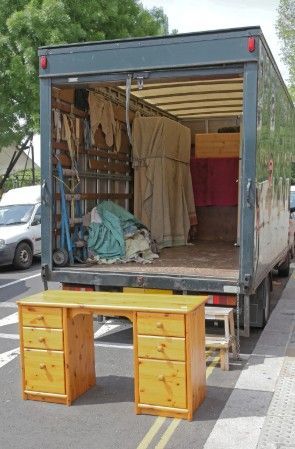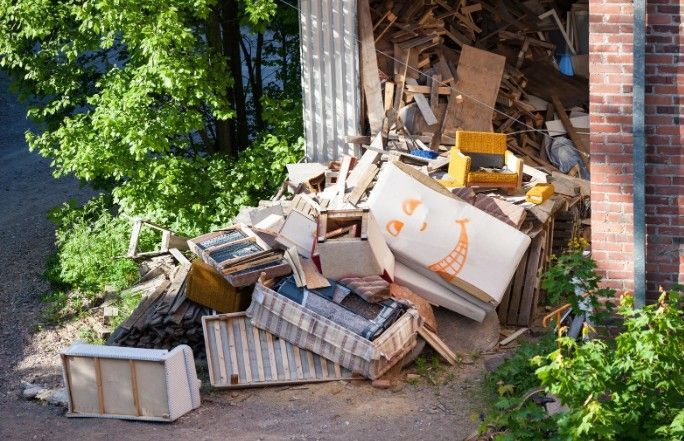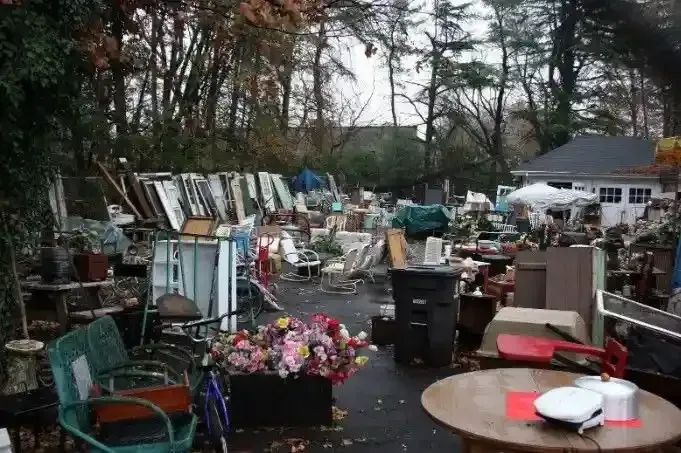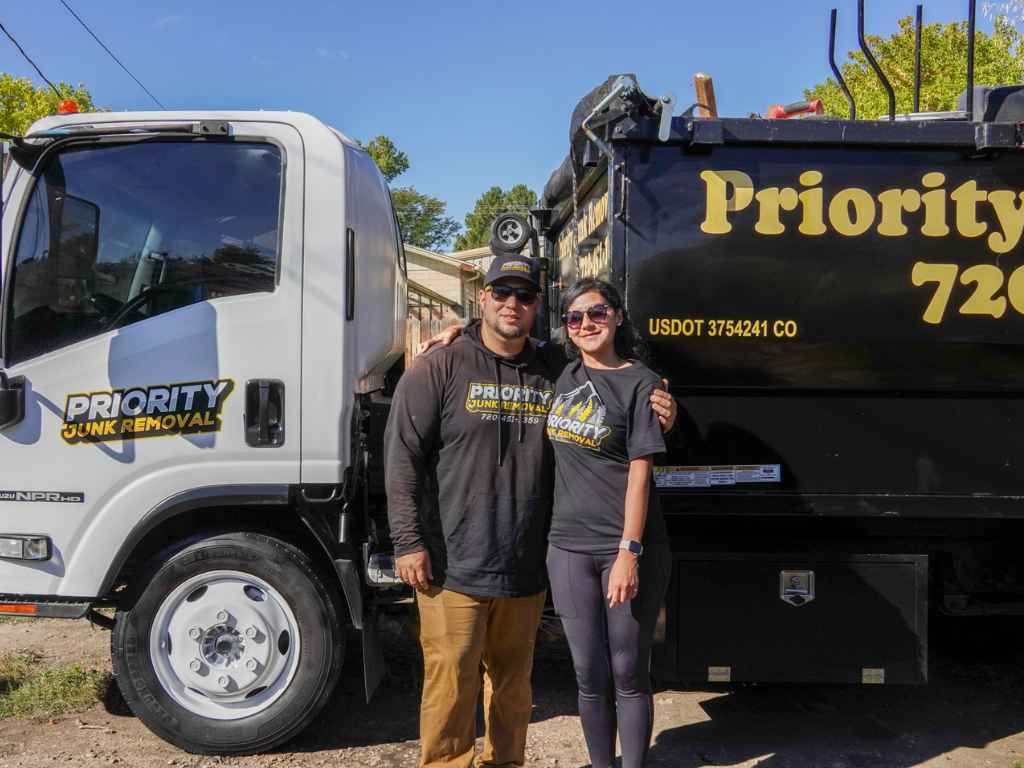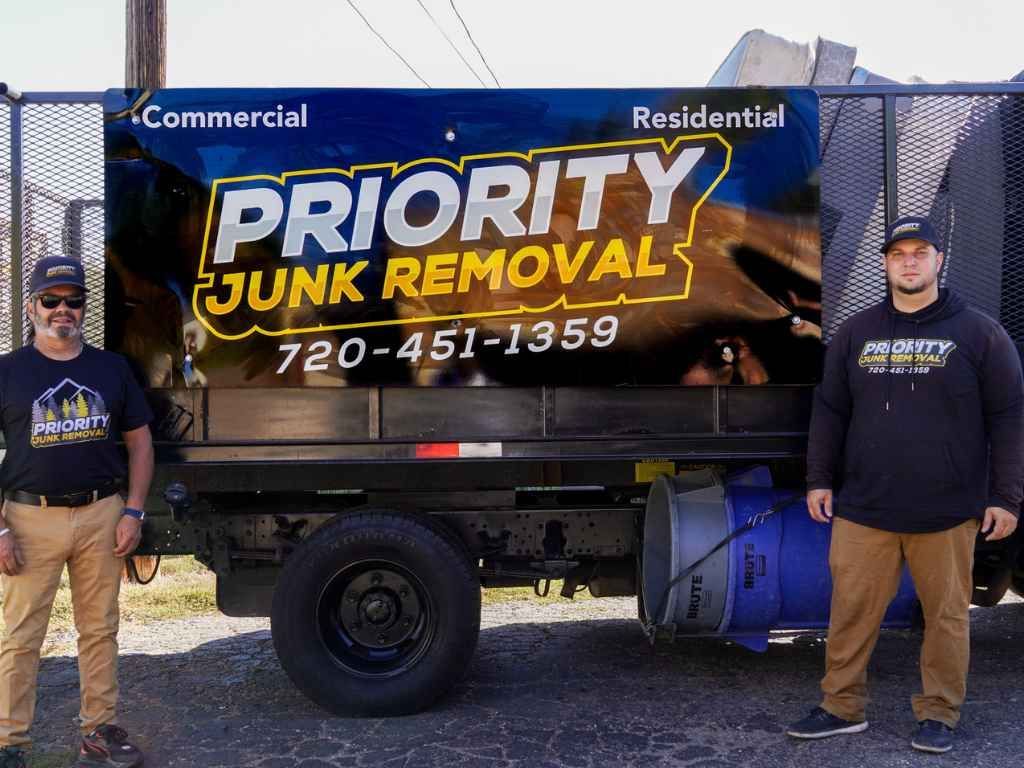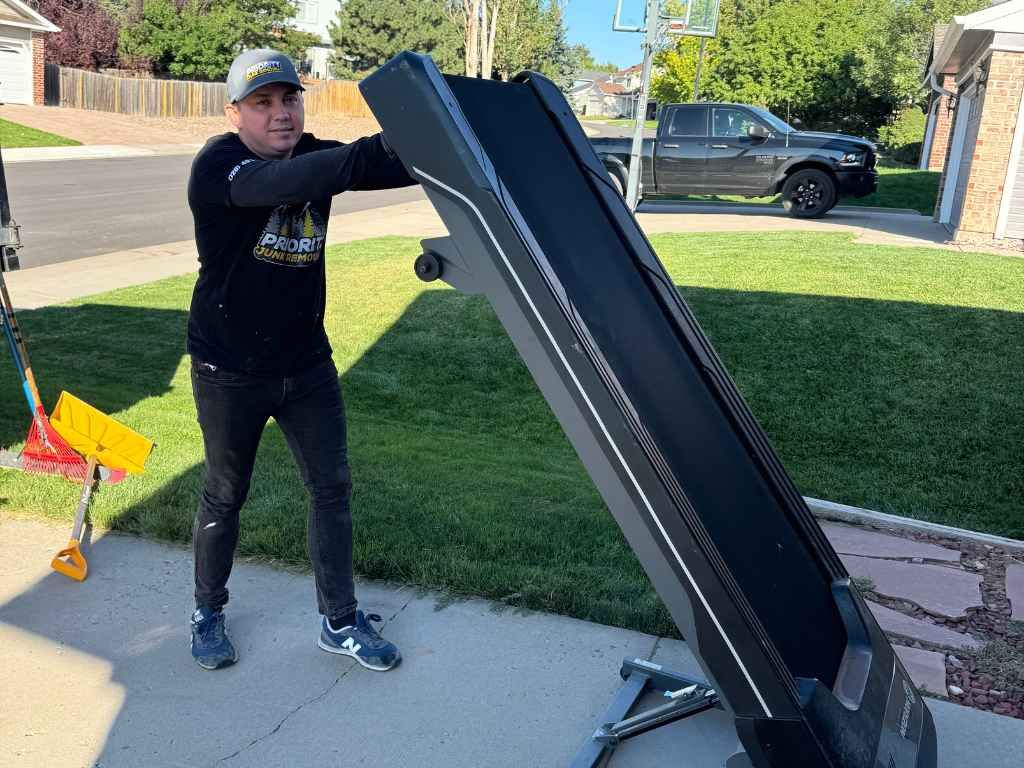Upcycling Ideas to Reduce Household Waste
Every plastic lid that pivots toward the trash can, every jam jar emptied of its sweet cargo, and each weary T‑shirt fraying at the collar represents an untold second act. In many Littleton kitchens, garages, and back patios, those almost‑forgotten castoffs crowd shelves and bins, poised to join the regional waste stream. Yet between the moment we call an object “used up” and the instant it clatters into a garbage truck lies a bright, creative interval. Upcycling lives in that margin, turning what once seemed doomed to landfill into something surprisingly fresh and functional.
Whereas recycling relies on industrial alchemy, upcycling thrives on imagination and a dash of elbow grease. It reorders our relationship with possessions, nudging us from passive consumers into inventive collaborators who coax new stories from old stuff. That shift in mindset does more than clear space; it alters habits, reduces demand for virgin materials, and ultimately slows the climb of household expenses.
Glass Jars Become Pantry Guardians
The humble glass jar—often dismissed after its original contents are gone—quietly steps into a second life as a pantry hero. Once labels are soaked away and lids washed clean, these vessels become crystal-clear guardians of grains, herbs, and snacks. Their transparency turns pantry shelves into open galleries where ingredients glimmer like edible gems under soft afternoon light.
Decorating them with chalk paint or rustic twine adds a touch of personality and cohesion, especially when jars of varied shapes replace clunky, mismatched plastics. In Littleton’s dry, high-elevation climate, the airtight seal preserves freshness longer—a bonus for flavor and shelf life alike. Reusing jars also slashes waste, sidestepping the energy-hungry recycling process and delaying the need for expensive storage containers.
Pallets Reimagined as Backyard Seating
Old shipping pallets might look rough and travel-worn, but with a few screws, a sander, and a little imagination, they transform into stunning backyard seating. Stack and secure two together, attach angled supports, and you’ve got the bones of a rustic bench. A coat of weather-resistant sealer smooths out the story told by every scuff and nick. Top with bright cushions or blankets, and you’ve created more than furniture—you’ve built a statement piece with soul.
Each bench redirects around 40 pounds of wood from the landfill and reduces demand for fresh lumber, sparing our forests. Littleton locals find that pallets complement the rugged Colorado aesthetic and work beautifully with mountain sunsets. Even better, sourcing pallets from nearby hardware stores cuts travel time and carbon emissions. It’s eco-practical, creative, and community-connected—all from a stack of discarded boards.
Denim Scraps Convert to Durable Floor Mats
Old jeans, frayed at the knees and too tight at the waist, still have plenty of life left in them—especially when you cut them into strips, braid them like rope, and stitch them into heavy-duty floor mats. The resulting spiraled mat handles muddy boots, kitchen spills, and even energetic pets with style. Indigo-dyed cotton softens with age and washes clean, unlike synthetic rugs that trap odors or fall apart in the wash.
Just one mat reclaims several pairs of jeans, helping reduce the flow of textiles into landfills—an especially pressing concern in Littleton’s dry climate where decomposition is sluggish. Local swap nights and craft collectives offer a social twist, too, encouraging neighbors to exchange denim scraps and share techniques. What begins as old clothing turns into something durable, useful, and uniquely beautiful—crafted by hand, powered by community.
Tin Cans Turn Into Herb Planters
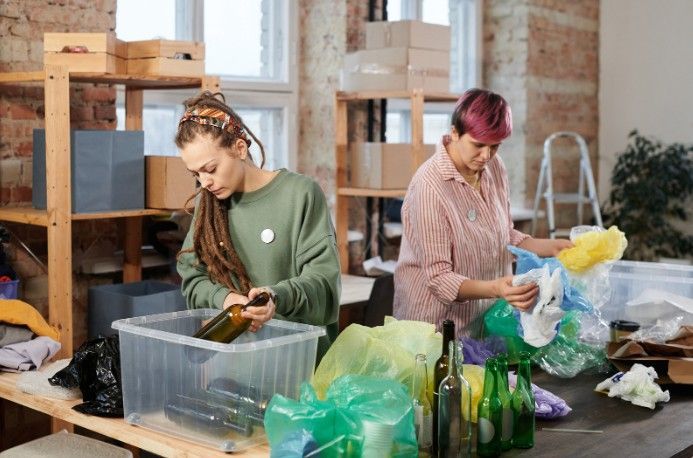
After the soup’s gone, the can remains—sturdy, cylindrical, and full of potential. With a little creativity, that tin can become a charming planter perfect for herbs like basil, rosemary, and mint. Poke a few drainage holes in the bottom, paint the exterior with leftover wall paint, and hang it from a repurposed hanger or set it on a windowsill. The metal absorbs warmth during the day, creating a cozy micro-climate that encourages seedling growth, especially helpful during Littleton’s chilly spring nights.
Skipping store-bought ceramic pots cuts costs and emissions, especially since many pots are shipped from overseas. Growing your own herbs, even in a small space, reduces grocery runs and food waste. Plus, finding seeds at local seed libraries becomes a mini adventure. It’s gardening on a budget—with a sustainable, upcycled twist that adds life to every sunny balcony.
Wine Corks Shape Custom Notice Boards
Corks left behind after wine nights might seem like trash, but slice them crosswise and they become the perfect grippy surface for a one-of-a-kind bulletin board. Line a thrifted frame with cut corks, glue them down, and mount the piece above a desk or kitchen nook. You now have a textured, functional display for recipes, reminders, or postcards—infused with a faint aroma of merlot or chardonnay. Saving 20 or 30 corks keeps small but meaningful weight out of the landfill.
It also honors cork’s natural sustainability, since the bark regenerates after harvest. Littleton crafters often discover a niche market by selling these boards at local markets, blending eco-conscious living with entrepreneurship. It's the perfect example of how something tiny and tossed aside can be turned into a useful piece with warmth, character, and even resale potential.
Cardboard Boxes Shift Into Kids Play Forts
Forget pricey plastic playhouses—nothing sparks imagination quite like a giant cardboard box. A leftover refrigerator or appliance carton can become a fortress, pirate ship, or space station with just a few crayon murals and well-placed cutouts. Add fabric scraps from old shirts as hinges for doors or windows, and kids instantly adopt it as their new favorite hangout. These homemade forts aren’t just whimsical—they’re practical.
Parents often trade big boxes on neighborhood forums, reducing the need to shop new and cutting down on transportation emissions. When the box finally wears out from all the adventures, it folds flat for recycling. In Littleton, where community spirit and eco-conscious habits run deep, this project lets families create joy while sidestepping waste. It’s a perfect loop: delivery to playtime to recycling—all with laughter along the way.
Old Ladders Ascend as Indoor Bookshelves
That retired wooden ladder gathering dust in the garage? It can rise again—this time as a rustic bookshelf that doubles as living-room art. Lay sturdy planks across the rungs, lean it against a wall, and suddenly you’ve got vertical storage for books, plants, or souvenirs. After a good sanding and a beeswax rub, the faded wood grain shines anew, glowing in the lamplight. This upcycle doesn’t just save space—it also avoids particle board shelves that off-gas chemicals indoors.
And in Littleton, where thrift shops often stock discarded ladders, sourcing is affordable and local. The beauty of this project is in the dual value: learning about safe finishes and home styling while giving forgotten materials a fresh purpose. It’s elegant, smart, and just a little bit nostalgic—an heirloom idea for modern living.
Tea Tins Morph Into Desk Organizers
That tin of Earl Grey or oolong may be empty, but the artful container it came in is just getting started. With the lid snapped back on and a chalk label up front, tea tins become eclectic desk organizers for paper clips, rubber bands, or thumbtacks. Cluster a few together and your workspace instantly gains charm and order. The real magic? Residual aroma clinging to the inside of the tins—infusing your supplies with subtle notes of jasmine or bergamot.
This upcycle keeps metal out of recycling bins and delays unnecessary purchases from office-supply stores. It’s also a microeconomic win: thoughtful reuse saves money and fuel. Littleton’s tea lovers know that even small acts of reuse add up over time—turning what was once clutter into a delightful, functional display of personality and purpose.
Bicycle Inner Tubes Reinvented as Bungee Straps
Flat bike tires are a bummer—but the inner tubes still hold value. Cut into strips, knotted into loops, and stretched to fit, they transform into soft bungee cords perfect for bundling garden stakes, lashing gear to bike racks, or corralling camping supplies. These repurposed straps offer flexibility without relying on synthetic rubber derived from petroleum. Instead of tossing worn tubes, cyclists along Littleton’s Platte River Trail often drop them off at volunteer repair stations, creating a loop where yesterday’s flat becomes tomorrow’s tool.
It’s a living, breathing cycle of sustainability—resourceful, local, and low-impact. In a town where biking is a favored mode of transport and outdoor adventures are always calling, this clever hack reflects a broader ethic: nothing is wasted, and every mile can lead to a better way forward.
Picture Frames Fashion Shadow-Box Charging Stations
An old frame missing its glass isn’t junk—it’s the start of a genius DIY charging station. Mount the frame onto a backing board, attach key hooks, carve a hole for cables, and suddenly, you’ve got a spot where phones can charge and hang neatly beneath a piece of art. Whether it’s wallpaper, a patterned scarf, or upcycled gift wrap behind the frame, the aesthetic possibilities are endless.
It also bypasses the need for mass-produced docks, many of which rely on plastic and offshore manufacturing. In Littleton, residents with a flair for crafting find a side hustle in selling these at local markets, combining decor savvy with sustainable principles. It’s a creative fusion of function and flair—a throwback frame with a modern mission.
Conclusion
When creative spark meets responsible disposal, homes transform into vibrant workshops of renewal—places where forgotten items and cast-offs aren’t just tossed, but reimagined. That rusted bike in the garage? It could be a future planter. Those mismatched chairs? A quirky patio set in the making. But not every item is ripe for reinvention—some are simply too bulky, broken, or even hazardous to handle on your own.
That’s when you call in the pros. Priority Junk Removal in Littleton steps in with a no-nonsense, eco-conscious approach to clutter. Their team doesn’t just haul—it sorts, salvages, and disposes with care, prioritizing recycling and donation wherever possible. Keep your space safe, your conscience clear, and your sustainability journey on track. Reach out at 720‑451‑1359 or priorityjunkremoval@gmail.com.

